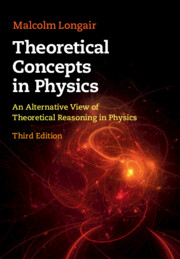Book contents
- Frontmatter
- Dedication
- Contents
- Preface and Acknowledgements
- 1 Introduction
- Case Study I The Origins of Newton’s Laws of Motion and of Gravity
- Case Study II Maxwell’s Equations
- Case Study III Mechanics and Dynamics: Linear and Non-linear
- Case Study IV Thermodynamics and Statistical Physics
- 11 Basic Thermodynamics
- 12 Kinetic Theory and the Origin of Statistical Mechanics
- Case Study V The Origins of the Concepts of Quantisation and Quanta
- Case Study VI Special and General Relativity
- Case Study VII Cosmology and Physics
- Author Index
- Subject Index
12 - Kinetic Theory and the Origin of Statistical Mechanics
from Case Study IV - Thermodynamics and Statistical Physics
Published online by Cambridge University Press: 27 March 2020
- Frontmatter
- Dedication
- Contents
- Preface and Acknowledgements
- 1 Introduction
- Case Study I The Origins of Newton’s Laws of Motion and of Gravity
- Case Study II Maxwell’s Equations
- Case Study III Mechanics and Dynamics: Linear and Non-linear
- Case Study IV Thermodynamics and Statistical Physics
- 11 Basic Thermodynamics
- 12 Kinetic Theory and the Origin of Statistical Mechanics
- Case Study V The Origins of the Concepts of Quantisation and Quanta
- Case Study VI Special and General Relativity
- Case Study VII Cosmology and Physics
- Author Index
- Subject Index
Summary
Following the discovery of the two laws of thermodynamics, theorists turned to the issue of finding an interpretation of the laws in terms of the atomic and molecular properties of the gases. Following Clausius's interpretation in terms of the kinetic theory of gases, Maxwell discovered the Maxwell velocity distribution and related it to Gaussian statistics. This marked the beginnings of statistical mechanics and the realisation that the law of increase of entropy has only a statistical validity. Out of these analysis Boltzmann and Gibbs created the discipline of statistical mechanics. The Gibbs entropy is also central to information theory.
Keywords
- Type
- Chapter
- Information
- Theoretical Concepts in PhysicsAn Alternative View of Theoretical Reasoning in Physics, pp. 288 - 324Publisher: Cambridge University PressPrint publication year: 2020

